Chiang Mai is one of the most popular hubs for digital nomads, and with good reason. It’s a goldilocks city for long-term travelers: it’s not too big nor too small, it’s progressive yet traditional and although it’s a city, there’s still plenty of natural beauty to enjoy. If you want to know more about living in Chiang Mai as a digital nomad, this guide is here to help. From the cost of living to the best neighbourhoods and coworking spaces, this guide contains everything you need to know.
If you’re heading to Chiang Mai on vacation, check out this luxury travel guide. Otherwise, stay tuned for my top tips on settling into Chiang Mai as a digital nomad.
Disclaimer: this post contains some affiliate links. When you make bookings through my links, I earn a small commission at no extra cost to you. Thank you for your support!


Why Live in Chiang Mai?
Chiang Mai offers digital nomads a very high standard of living at an affordable price. There’s a strong expat community and it’s easy to meet new people. Although Chiang Mai is a small city, there’s lots to enjoy in the way of culture, shopping and entertainment. It’s very safe and the locals are friendly and welcoming. Chiang Mai also boasts many excellent cafes, coworking spaces and fast internet speeds so that you can actually get some work done. Here, you can work hard and play hard – it’s all about balance, after all.


Thai Visas for Digital Nomads
Before we dive in, I should say that these rules are subject to change at any time. Always double check government advice.
There are three main types of visas for digital nomads in Thailand:
Visa on Arrival
Many nationalities are entitled to a 30 day visa waiver, so you can just rock up and roll in. Travelers from 64 countries can obtain this visa – click here to check whether or not you’re eligible.
In order to extend this type of visa you’ll need to do a visa run.
Tourist Visa
A tourist visa allows you to stay in Thailand for 60 days at a time. This is the best option if you’re planning on sticking around. You’ll need to apply for this type of visa before you travel and you can choose either single or multiple entry.
You can extend a single-entry visa for 30 days, or a multiple-entry visa for 60 days. Therefore, with this type of visa you could stay in Thailand for up to four months without leaving.
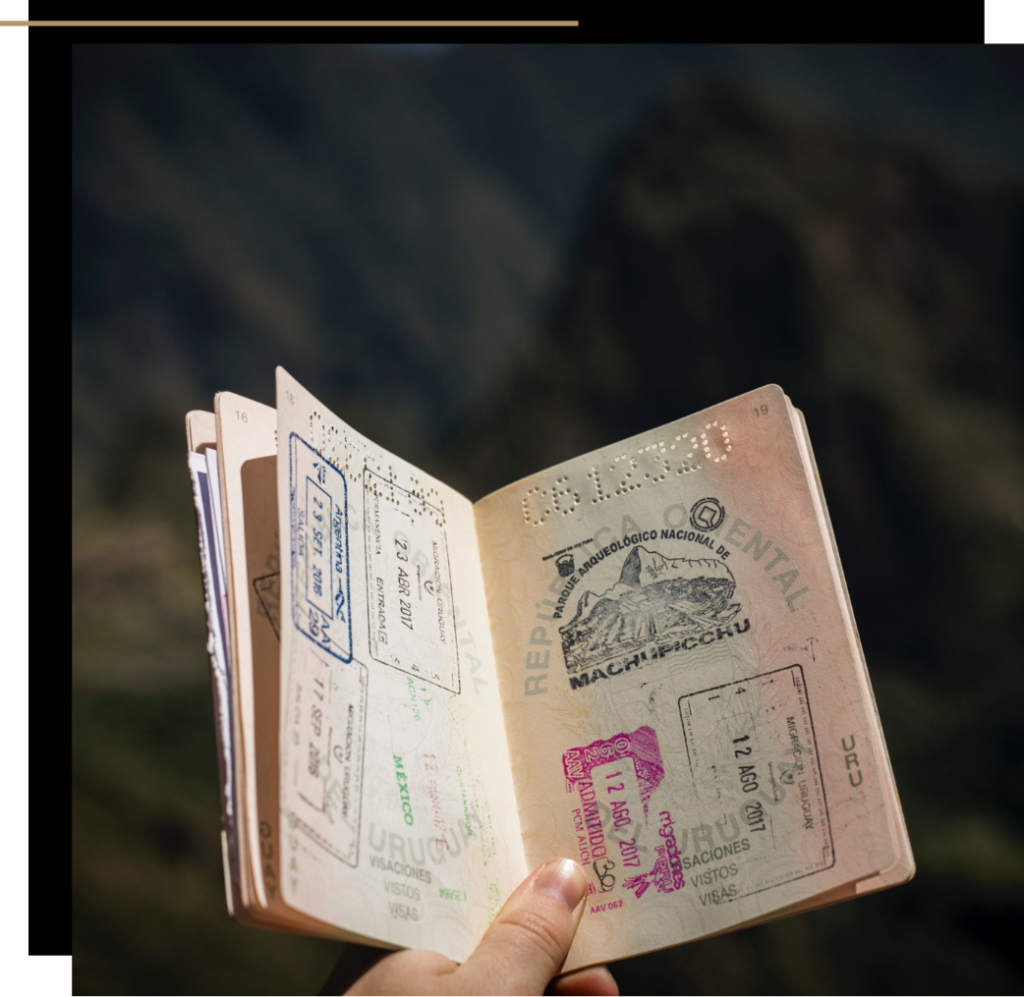

Cost of Living in Chiang Mai for Digital Nomads
One of the main draws of living as a digital nomad in Chiang Mai is the affordable cost of living. You can find a one-bedroom apartment in the city center for between $400-600 per month. In a cheaper area, you’ll find something similar for $250-500. If you’ve got pals to share a villa with, you’re looking at $1,000-2,000 per month. Of course, this does depend on how lavish you go and how many bedrooms you’ll need.
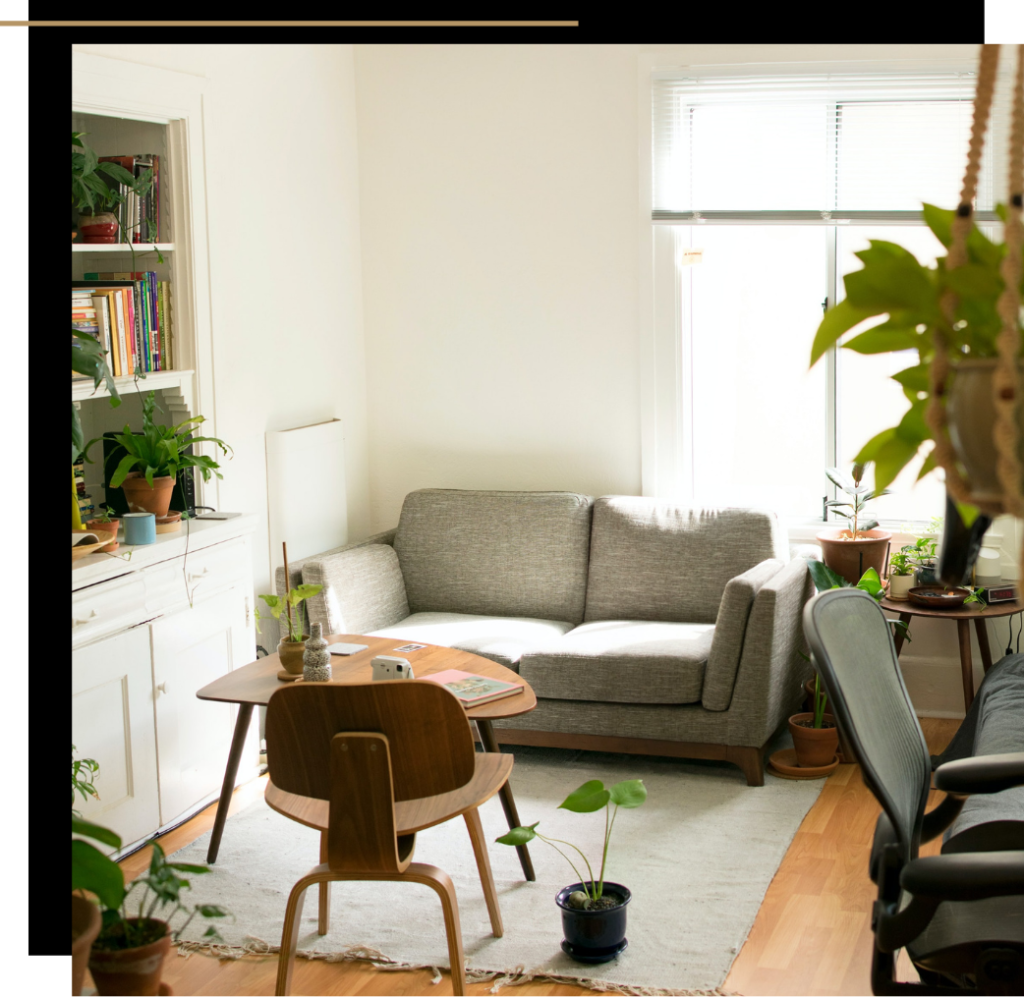
For bills, you’re looking at around $100 per month for gas, electricity, water and internet for one person living alone. If you’re sharing your digs with others, this should be a little cheaper.
You’ll need a moped to get around Chiang Mai, especially if you’re living outside of the city center. A basic ride like a Yamaha Nuovo or Honda Click will cost around $65 per month. However, you can upgrade to something fancier if that’s how you roll. Gas costs $0.94 per litre, so a full tank shouldn’t set you back more than a couple of bucks.
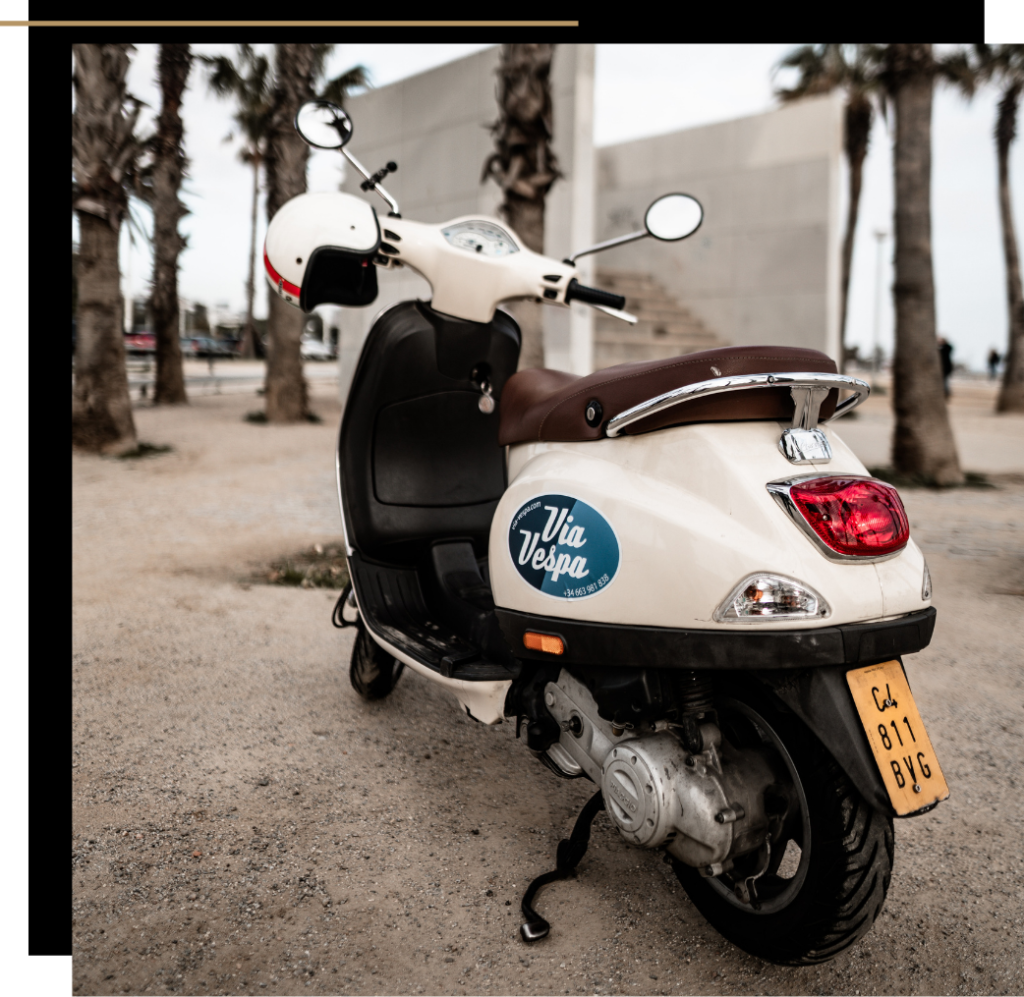
I’ll get into more details of coworking spaces later on, but a decent one will set you back around $80-$150 per month, depending on the package you choose.
Eating out at local restaurants is very affordable. You can find delicious Thai food for $1-3, whilst you’re looking at $5-15 in a western place.


Climate
Chiang Mai is hot and humid for most of the year. Temperatures are scorching from April to June whilst the rain storms from July through October is the wet season – but don’t be intimidated. Some of the monsoons are pretty epic but they’re usually over fairly quickly.
The best weather occurs between November and February; during these months you’ll enjoy balmy sunshine and clear skies. Avoid the month of March if you can. It’s burning season, which sees the city submerged under a grey, asthma-inducing haze.


Best Neighborhoods for Chiang Mai Digital Nomads
Nimman
Nimman is the most popular digital nomad neighborhood in Chiang Mai. It’s centrally located with lots of great accommodation and amenities. For this reason, it’s more expensive than some other areas of Chiang Mai, but still very affordable when in comparison to most western cities.
Santitham
Santitham is cheaper than Nimman but still fairly well located – it’s a 10-20 minute walk from the city centre. Some expats live here but it definitely has more authentic Thai character than Nimman. If you’d like a balance between expats and locals, Santhitham could be the perfect neighborhood for you.
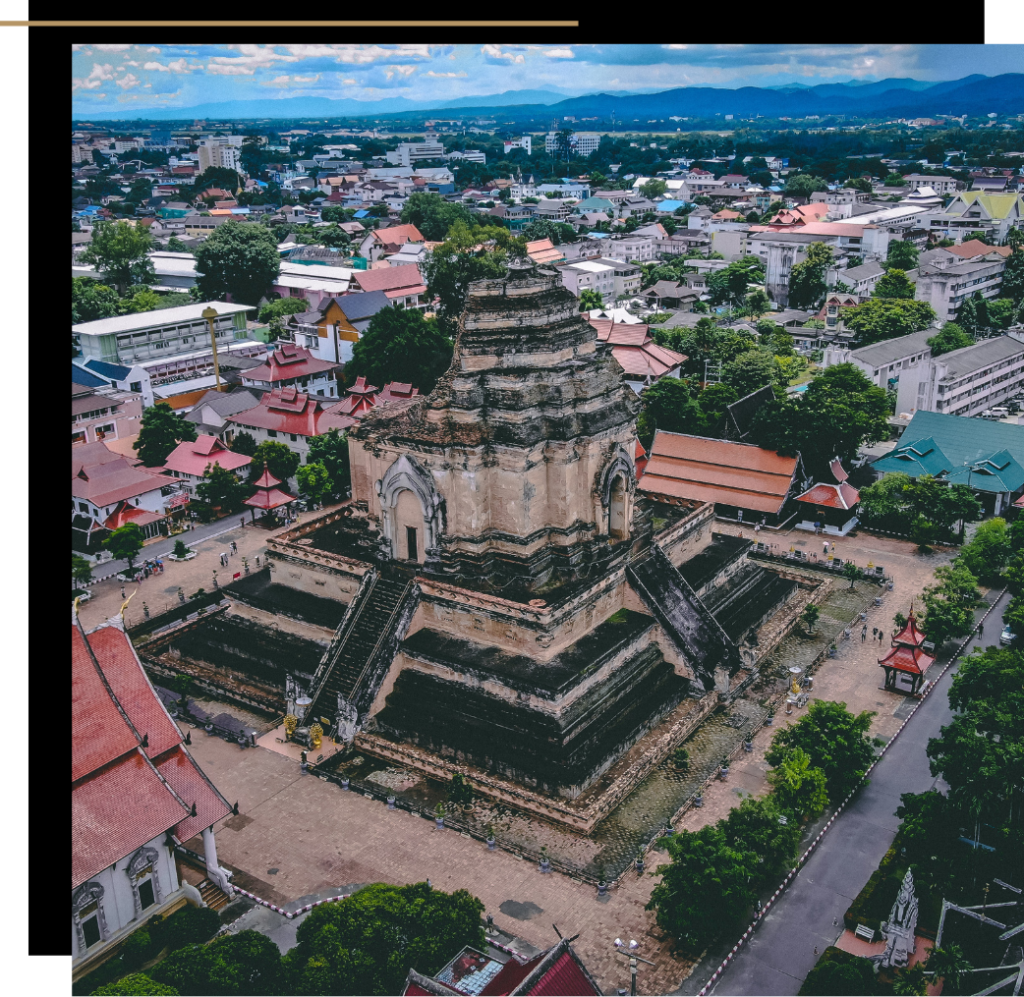
Suthep
A dollar goes a long way in Suthep and you’ll get to enjoy lush green landscapes and beautiful mountain views. This area is perfect for digital nomads looking for peace and tranquility. You’ll definitely want to get a moped if you live here, though, as it’s a couple of (hilly) kilometers outside of the main action.
The Old City
The Old City definitely caters to tourists but it’s a good place to stay for a couple of weeks as you find your feet. You’ll pay a little more but you’ll be right in the heart of the city. You can really get a feel for Chiang Mai before venturing out into an expat neighborhood.
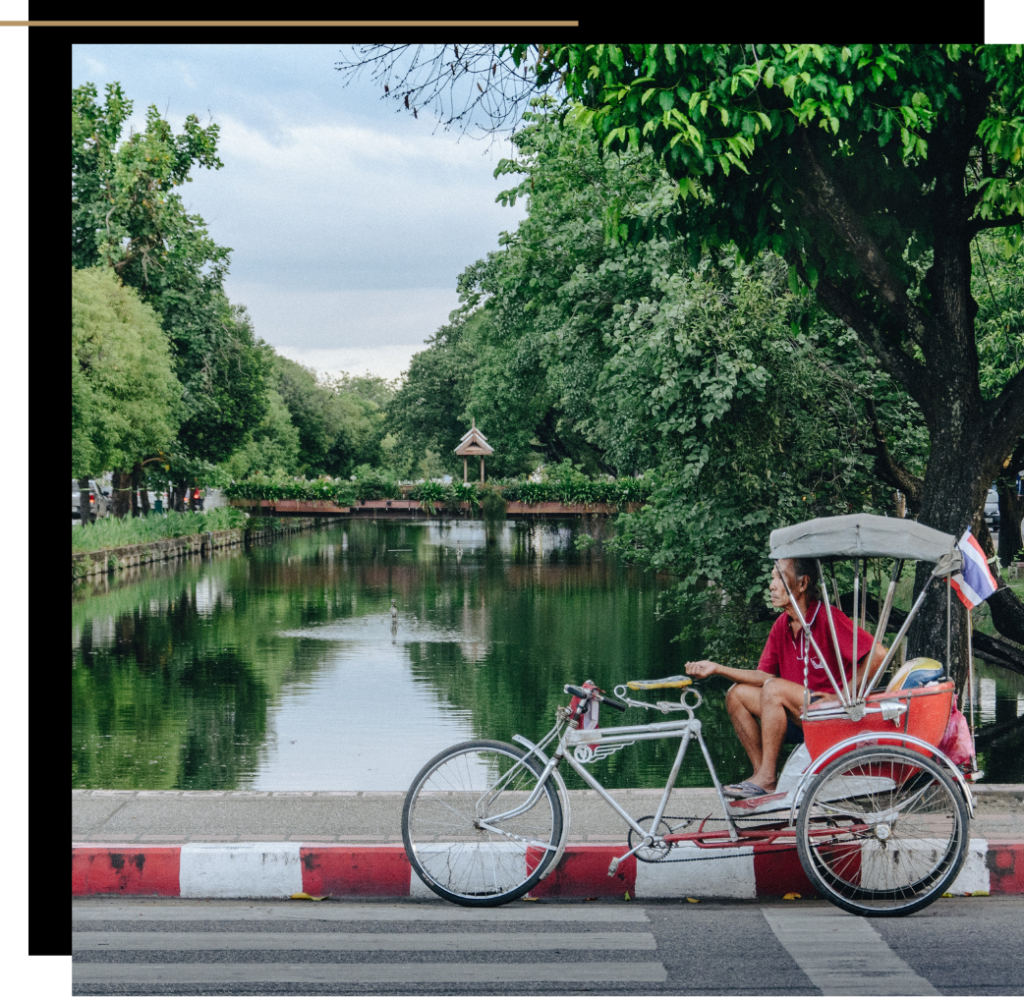

Amazing Luxury Airbnbs in Chiang Mai for Digital Nomads
When you first arrive in Chiang Mai, I highly recommend staying in an Airbnb. I often do this for my first month in a new place because it’s so easy and convenient, with no long-term commitment. I’ve picked out a couple of Airbnbs that might be suitable for your first month in Chiang Mai.
DCondo Sign
This clean, modern apartment in the Suthep neighborhood is a luxurious yet wallet-friendly choice for a solo traveler or couple. With a spacious pool, well-equipped gym and fully stocked kitchenette, you’ll have everything you need as you settle into the city.
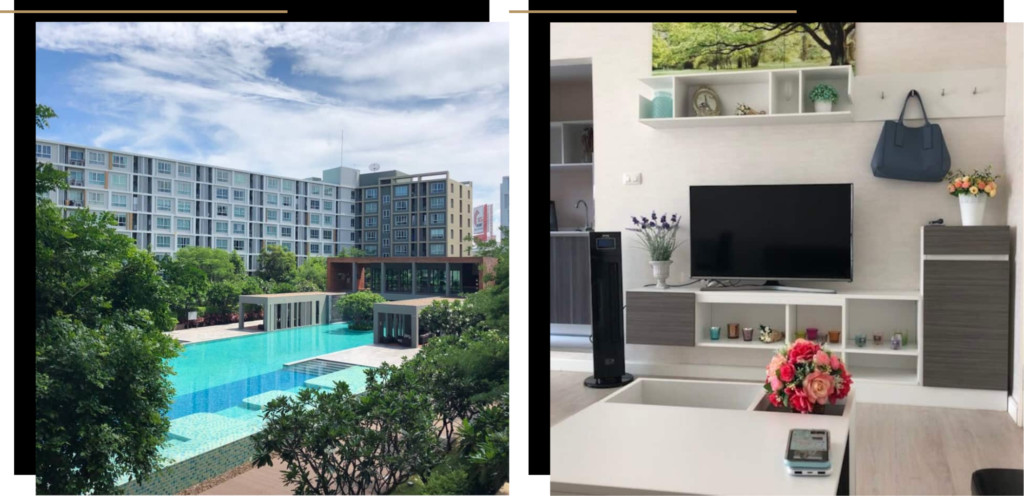
Suite 6 – Sunny Suites
You’ll feel right at home in this newly renovated apartment in a small, friendly building. It’s right in the heart of the city so you’ll be within walking distance of all the best entertainment.
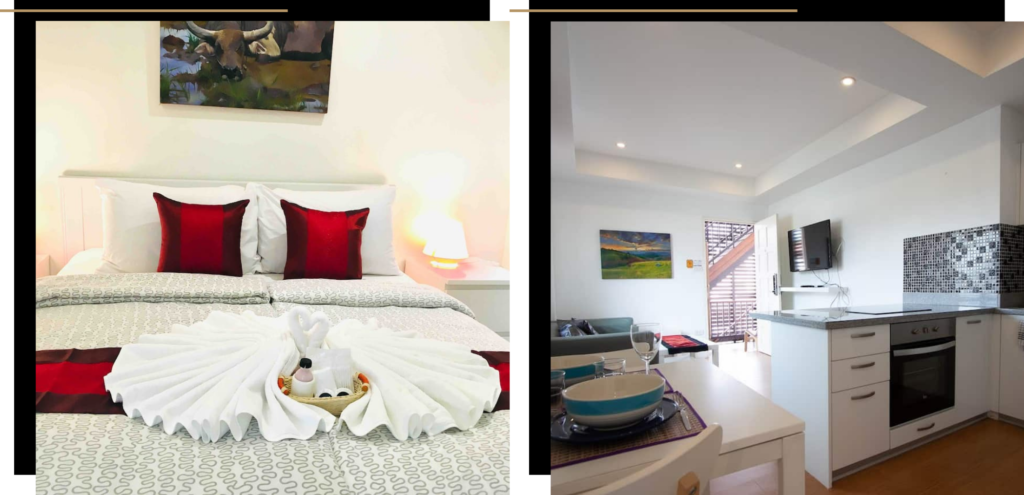
Central Home in the Heart of Bustling Nimman
A spacious and tastefully-decorated apartment in the heart of the expat-favorite Nimman neighborhood. I’m in love with these elegant boho vibes!
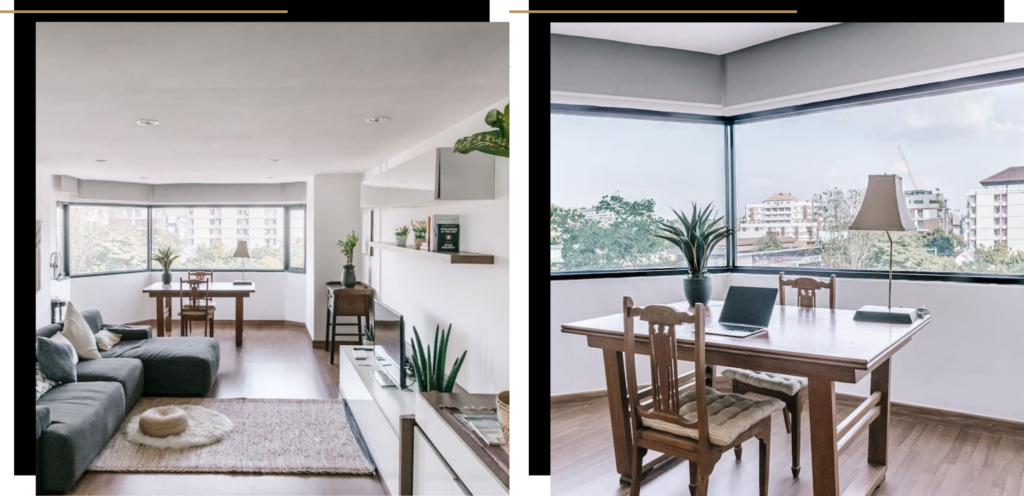

How to Find a Long-Term Rental in Chiang Mai
Airbnbs are a great way to get started. However, once you start to understand the law of the land, you should look for a long-term rental. This is cheaper than using Airbnb and generally, you get bigger discounts the longer your contact. There are usually incentives for signing three, six and twelve month leases. Plus, you’ll have a much better idea of what suits you best and get a chance to look around your new home before you commit. You might even be able to knock a couple of extra dollars off of the price in person if your negotiating skills are up to scratch.

Agents and landlords often use Facebook to find new tenants. It is the all-powerful networking tool, after all. These groups are a good place to start but keep your ear to the ground because it’s possible to find amazing apartments through word of mouth, too.


Coworking Spaces for Digital Nomads in Chiang Mai
Once you’ve figured out where you want to live, you’ll need somewhere to work. As one of the most popular digital nomad cities in the world, Chiang Mai is home to plenty of excellent coworking spaces where you can power through your projects.
Punspace
Punspace is the original – and many would say best – coworking space in Chiang Mai. In fact, it’s so popular that there are now three branches across the city. Punspace offers comfort, fast internet, good facilities and 24-hour access… you really can’t go wrong.

CAMP at Maya Mall
CAMP is perhaps the swankiest coworking space in Chiang Mai for digital nomads. It’s as though a coworking space, a library and a coffee shop combined to form a productivity powerhouse. I love its glass walls and trendy modern design, as well as the fact it boasts superfast internet speeds. CAMP is sponsored by AIS, one of the largest telecom providers in Thailand, so you can count on a stable connection.
Hub 53
There’s a relaxed and communal feel at this creative coworking space. It’s home to an excellent smoothie and salad bar for when you need some healthy and delicious fuel. There’s also a washer-dryer on site which is super useful if you don’t have one at your place.
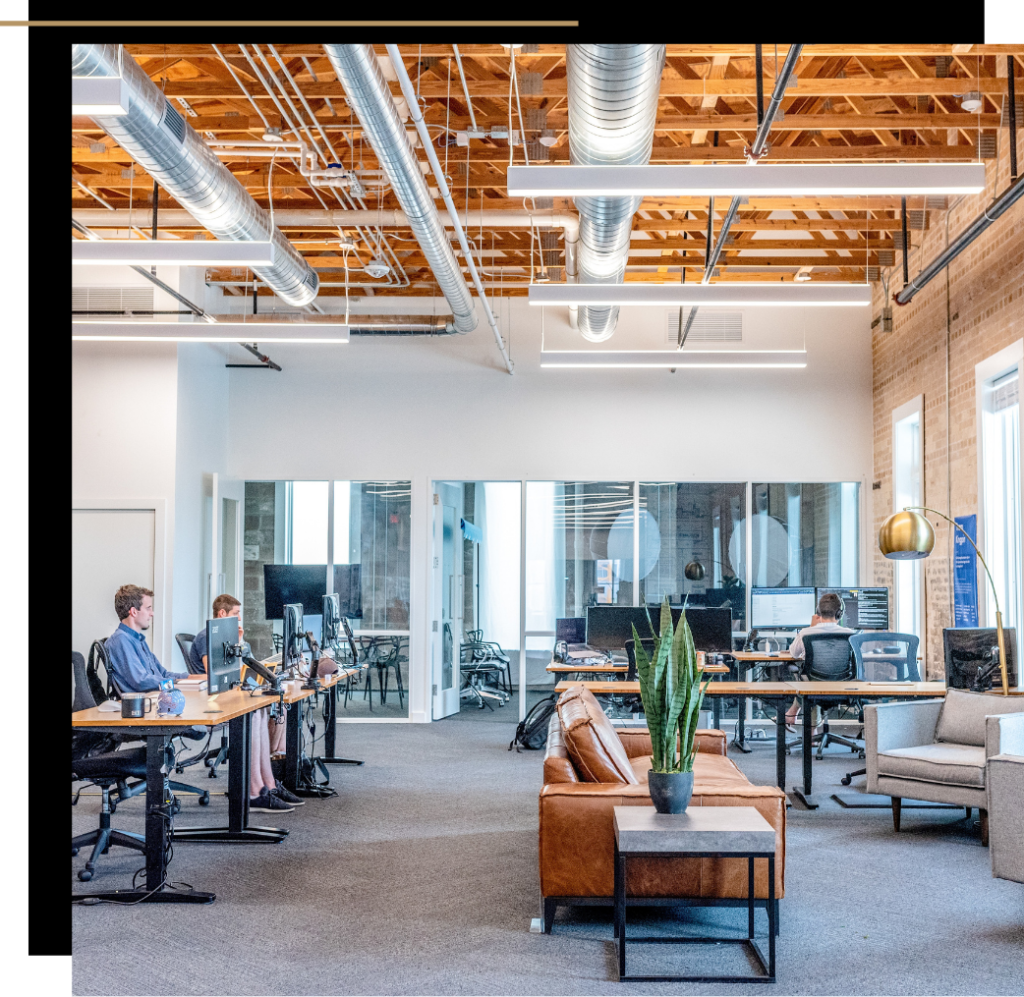

Best Gyms in Chiang Mai
Chiang Mai is full of excellent gyms which is good news for digital nomads who are keen to stay in shape. Exercise is a really important part of caring for your mental wellbeing, which is more important than ever when you’re living thousands of miles away from home.

GoGym
GoGym has a great selection of free weights and there are many trainers available to create a personalised plan for you to get in shape.
Fitness Thailand
This gym has great facilities and you can enjoy wonderful views of Chiang Mai as you work up a sweat. There are lots of classes on offer, so it’s perfect for those looking to try new things and meet fellow fitness enthusiasts. There’s also a sauna and steam room for a spot of post-workout relaxation.
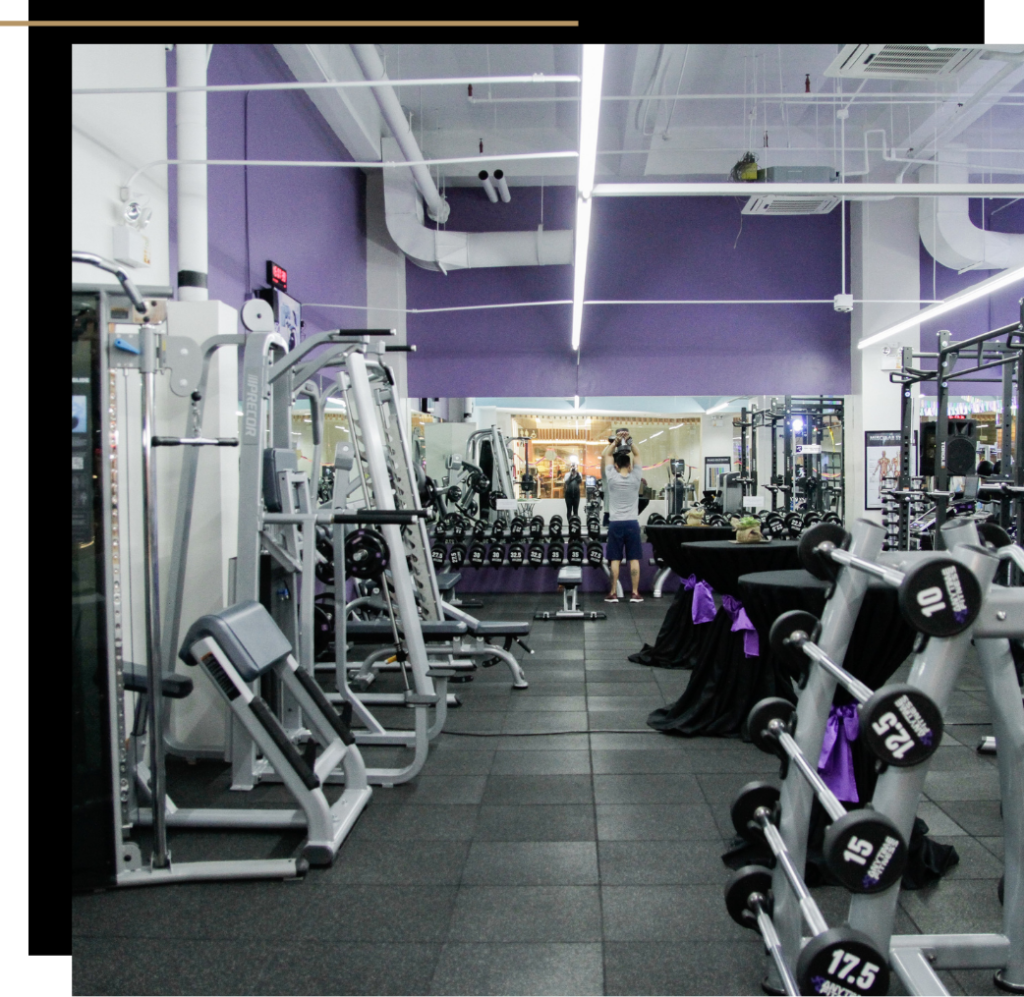
MAXX Fitness
MAXX Fitness is swanky and well-equipped with lots of cardio machines and a variety of yoga classes on offer. It’s one of the most upscale gyms in Chiang Mai, perfect for those who want to work out in luxury.

For more amazing digital nomad destinations, why not check out this list of the best destinations to live and work in luxury? And if you’re yet to get your online career off the ground, be sure to take a look at the best online jobs you can do right now.


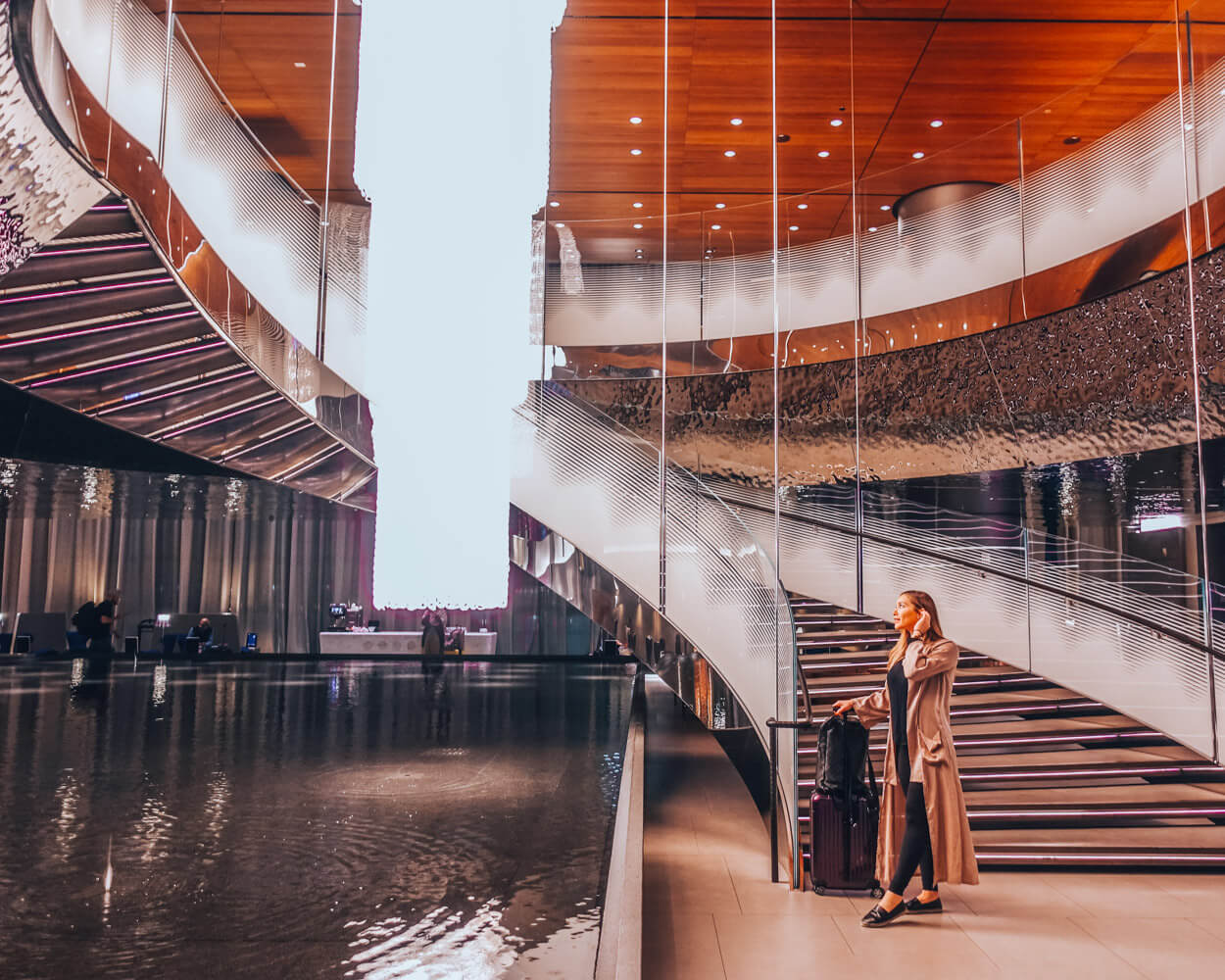

[…] is healthy and glowy, you look amazing with or without makeup – and if you do decide to apply foundation, it’ll glide on flawlessly. The problem is that there’s a lot of misinformation on the internet […]
[…] Generally speaking, the sunscreen in Southeast Asia tends to be expensive. I often find that there are few choices, too, so I always bring my own from home when going on a trip. If you’re moving abroad permanently you’ll eventually need to research a good brand in your new country. Still, it’s definitely worth taking a fair few bottles so that you don’t have to worry about it until you properly settle in your new home. […]